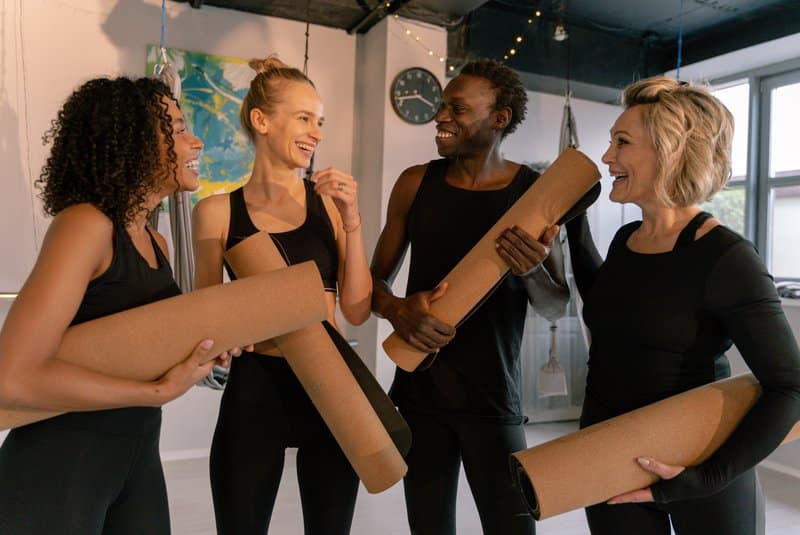
Getting a job/ internship or any work might seem difficult at times. But that’s a secondary problem. Our primary concern should be how we can get there and with what necessary steps. The answer is in your resume or curriculum vitae (CV). Your resume plays a vital role in getting you your dream job. It has elements like your area of interest and your work-life overview that tell a lot about your personality.
It might be a critical factor in getting you the job of your dreams. After all, a job is not just about your skills but also about your attitude. We often ignore highlighting our personality through our interests.
A resume tells a story about the concerned person, and it has to go beyond his work experience and education history. Most of what you learn in life is because of what you do in your spare time.
If you have missed out on it, it might be one reason why you’re not converting that interview.
Let’s deep dive into what and how exactly “area of interest” plays a crucial role in getting you the job you’ve been eyeing.
What Is the Area of Interest?
The area of interest is a section in your resume that talks about your interests and hobbies, like playing baseball, writing, traveling, photography, or anything relevant to the job profile.
This can include anything and everything you like to do in your spare time.
You should add any activities and hobbies relevant to the job you’re applying to, which can attract the recruiter’s extra attention to your profile in this section.
It can sometimes work as brownie points, or you might just get hired because of this particular section. It ensures 100% preparation on your part for that job!
How to Make Your Resume Better With Area of Interest?
It is equally essential for you to focus on each section while writing your resume. It would help if you did not go haywire while preparing it. Everything should be evenly spread across the resume, balancing and supporting your interests, hobbies, and experiences.
In fact, sticking to the point and giving relevant responses is much appreciated as nobody will read stories.
Also, don’t write out simple words like baseball, painting, writing, etc. Try to elaborate it in a sentence wherever possible. For instance, Instead of writing “baseball team captain,” you may write, “I was the captain of my baseball team for two years in my high school.”
You cannot change your qualifications in the resume nor erase the experiences section. However, you can continuously develop new interests and hobbies. You can learn new things to add to your resume later. That works as a variable, and you have the control to give it a direction.
In fact, if anything in your resume is close to what the recruiter is looking for, there are great chances of you acing the interview.
Remember, it is vital to highlight the key points in your resume. Your resume should be neat & clean and should look interesting and appealing.
What Can You Include in Your Area of Interest?

The scope in the area of interest section is very much broad. There are plenty of hobbies a person can have, develop or learn if they want, and there can be hobbies that you would not have ever heard about earlier, which pretty much sums up the broad spectrum of this section.
The primary section of the areas of interest for many people usually includes the sports and arts category. Along with sports and arts, the other common categories similar to these include:
Sports
If you are a sports enthusiast, this is for you. If you like to play and participate in anything related to sports, you can mention it in your area of interest section of the resume.
You can include all kinds of sports when discussing your indoor and outdoor interests.
If you are good at a particular sport or have awards to show, you should add them to your prizes won/ participation section. It speaks volumes about your determination toward your work.
Art
If you are into performing arts or any art forms, you should include them in this section. Artists are creators of new things, and that’s a much-needed trait for any job that one can think of.
Writing/ blogging
You can provide your recruiter with relevant examples from your past work. If it’s relevant to your dream job, your skills will shine through! You can start working as a part-time freelance writer/ blogger if you don’t have any.
Vlogging
Vlogging is a video blog where most of the content is in the form of a video. One can use it to share their performances and music videos. Just like blogs, everything can be made into vlogs.
Graphic Designing
Graphic designing is a booming art industry, where designers create visually appealing content through graphics to communicate messages more impressively and interestingly.
Anyone can learn graphic design as it does not require any prior qualifications. Many institutions offer this course nowadays.
Traveling
Traveling is an extensive sports interest. People who love adventures and like to explore new places can start traveling. One can turn this particular interest into a full-time career path.
It has become a widely recognized career option now. You can work as a travel guide, travel agent or get a job in tourism.
The Lesser-Known Areas of Interest.
As much as everyone is aware of common interests and hobbies, there are still many unexplored options that only a handful of people know.
With the lesser-known also comes lesser competition, more job opportunities, and faster growth. Learning and exploring lesser-known interests can take you places as not many people have discovered the same.
How Can the Area of Interest Section Affect Your Skills?
Your areas of interest are best if it aligns with the job role. You can tailor your resume according to the job profile to become more eligible for the applied job role.
If you are applying for the graphic designer role and have mentioned cooking as your hobby, it won’t help you get the job. You need to be interested in graphics, drawing, and computers to be suitable for the same.
The primary purpose of your areas of interest is to be relevant to the job descriptions, which eventually helps the recruiter understand your personality better. Usually, these recruiters look for employees with the right attitude.
A potential candidate can always learn and develop his skills, but changing his attitude toward the job is cumbersome.
What Not to Write In the Area of Interest Section?
- As mentioned earlier, avoid writing simpler terms when saying your hobbies, like using a word or two and getting away with them.
- In a sentence, it would be better to explain your interest or any specific positions in the same field that you held in the past. This will upskill your interest in a particular hobby, which might impress the recruiters to hire you.
- As explained above, avoid writing mismatching hobbies in the job description. Try mending your interests and hobbies according to what the recruiters would prefer and what they are looking for to be a strong fit.
- Try not to write it all in one sentence/point or over-explain it by providing a list of irrelevant things to the job. You may balance it out by putting only one sentence for each of your interests.
- Even if you are an all-rounder, keep it simple, stick to the most relevant points, and mention only what is needed.
How to Know Your Interests and Hobbies?

There can be times when you are too confused about what you like and what you don’t! You might as well be a bit of a know-it-all, but it isn’t easy to be a perfectionist in one specific field.
It would help if you went for simple hobbies relevant to the job you applied for and can be done quickly by you. It is not essential that you have to be like Picasso all the time.
You may write about your basic knowledge of computers if it’s a job profile related to the technical field.
Moreover, various websites can help you find your hobbies and interests. You need to answer some questions, and the website will do the needful for you, which can be a great help. It might not be accurate, but it can set the pace for you to start thinking about your interests.
In Conclusion

It is safe to say that not many people pay attention to the “area of interest” section. And it is also pretty evident that this particular section plays a significant role in making your resume become a favorable one among many!
Your work history and education will be similar to what your competitors will have on their resumes. But your interests are certainly going to set you apart from the lot.
There’s no question why one should be more attentive to the area of interest section in their resume. And a well-written resume can land you jobs you might not be cut out for.
Your resume is a story about yourself that you tell everyone. Make sure it’s a good one!

Ranu Kumari is a Professional Writer and a Marketing enthusiast who currently runs her own Marketing Consultancy, LatitudeBOX. She has written promotional articles for multiple brands and has published her work in Scopus indexed journals. She is passionate about expressing her thoughts and ideas to connect with her readers in a voice that they understand.

Find the jobs
It really help me to figure out some relevant things
And know more about my hobbies